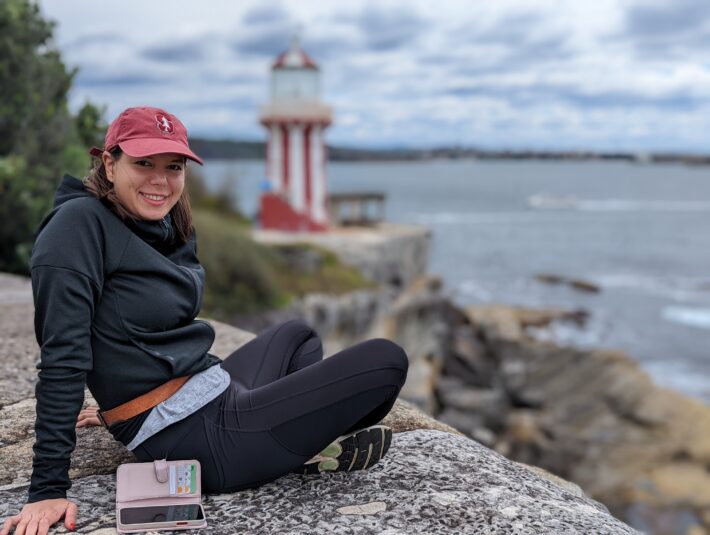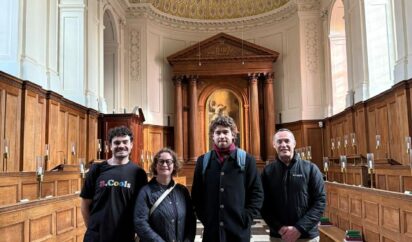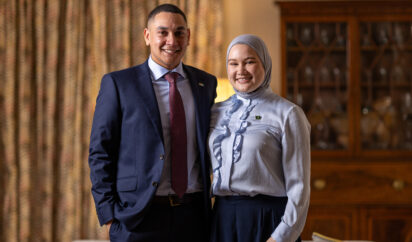News
Google Launches Future Leaders in STEM scholarship
Google is offering three scholarships to Aboriginal and Torres Strait Islander undergraduate students at any university in Australia. Students should have aspirations to work in STEM fields but do not necessarily need to be in a STEM-related course. To mark the occasion we interviewed Candice Bowditch, a Larrakia, Wadjigan and Arabunna woman who works as a Security Engineer at Google.

What inspired you to pursue a Bachelor of Computer Science?
A tutor I admired at my university told me that was what she studied. I was studying the Bachelor of Games Design at RMIT University at the time, and found out about the degree program through her by chance. I used to get high grades and awards in school in my Information Technology classes. Ultimately I dropped out of high school, but it was the one subject I truly enjoyed. I would build my own gaming computer and do hobby programming at home. I had never been exposed to a Computer Science degree, I previously didn’t know it existed. As soon as I found out about it, I was driven to apply. I was able to transfer internally with my GPA from the Games Design degree, which had some overlaps in content.
Can you describe your experience of working at Google?
The scale of the work is really interesting, you are often working on novel problems or your team is at the cutting edge of developing some new technology, or in my case working on some new cyber security detections that might relate to the whole fleet of machines at Google. There’s a really good energy, the culture is supportive and people are generally very excited about what they are doing, or what their special interests are. There’s a lot of really humble, very friendly, super smart people that are eager to teach and impart their knowledge and experiences.
How important is it for Indigenous students to have access to Indigenous focused scholarships like the Google STEM Future Leaders and why?
It’s important for Indigenous students to not only learn about and discover the various careers and academic opportunities available to them in STEM. But also there needs to be many more sincere discussions about equitable access for mob to simply arrive at the ability to study at a tertiary level. That includes financial considerations, but foremost: access to quality schooling going back to the very beginnings of an individual’s education journey. There already is a large quality of education gap between Public and Private schools, and the gap between Indigenous and non-Indigenous education outcomes are significantly wider. There is an additional important layer to this, which is that there is no one size fits all solution to solving Indigenous education inequalities. A child growing up in a remote community, versus a child growing up in an urban centre have completely different requirements and needs in the learning environment. Coming out the other side of this, speaking from my own experience, as someone who was educated in an urban centre, it’s still very easy to slip through the cracks and miss out on an opportunity to pursue academic studies. Compounded by financial constraints such as moving away from home for education, pursuing a STEM education might seem less appealing when there are more supported pathways into say another field. Or as we’ve seen over and over again with mob, there is social conditioning or continuous messaging that Art or Sport is a better fit, and yes we have so much to be proud of, but that is in part because we’ve been historically permitted some access into these spaces. As such, there are more role models available, we can see powerful, and extraordinarily successful representations of ourselves. It’s just as important to be seen by society, and be self-determining how we are represented, because historically our career opportunities have been defined by how much level of access we were permitted. Take a look at Certificates of Exemption or “dog licenses”, that was my grandmother’s generation. We need to cultivate Indigenous leaders in STEM, we need to be seen in these spaces, we need to normalize our success and make it such that any Indigenous person can envision themselves in this field, but also be cultivated and supported as much as non-Indigenous students. This is a huge and very important, worthwhile undertaking to support our next generation Indigenous leaders in STEM, and I know with every effort we will seed change.
What advice would you give another Indigenous student aspiring to work in STEM?
Keep going, don’t give up. You are good enough, you are deserving to be here, and of every opportunity that comes your way. I implore you to take every opportunity because we have fought so hard for them. You have support, you might not immediately see it, you might not know them yet, but there are a lot of people you will meet along the way that will be your greatest advocates. Dream big, that is your absolute right.
What is a fun fact about yourself?
My cat’s from Yuendumu. But I adopted her from a shelter out of Sydney. It just happens that we are both Northern Territory girls, we are lucky to have found each other.

